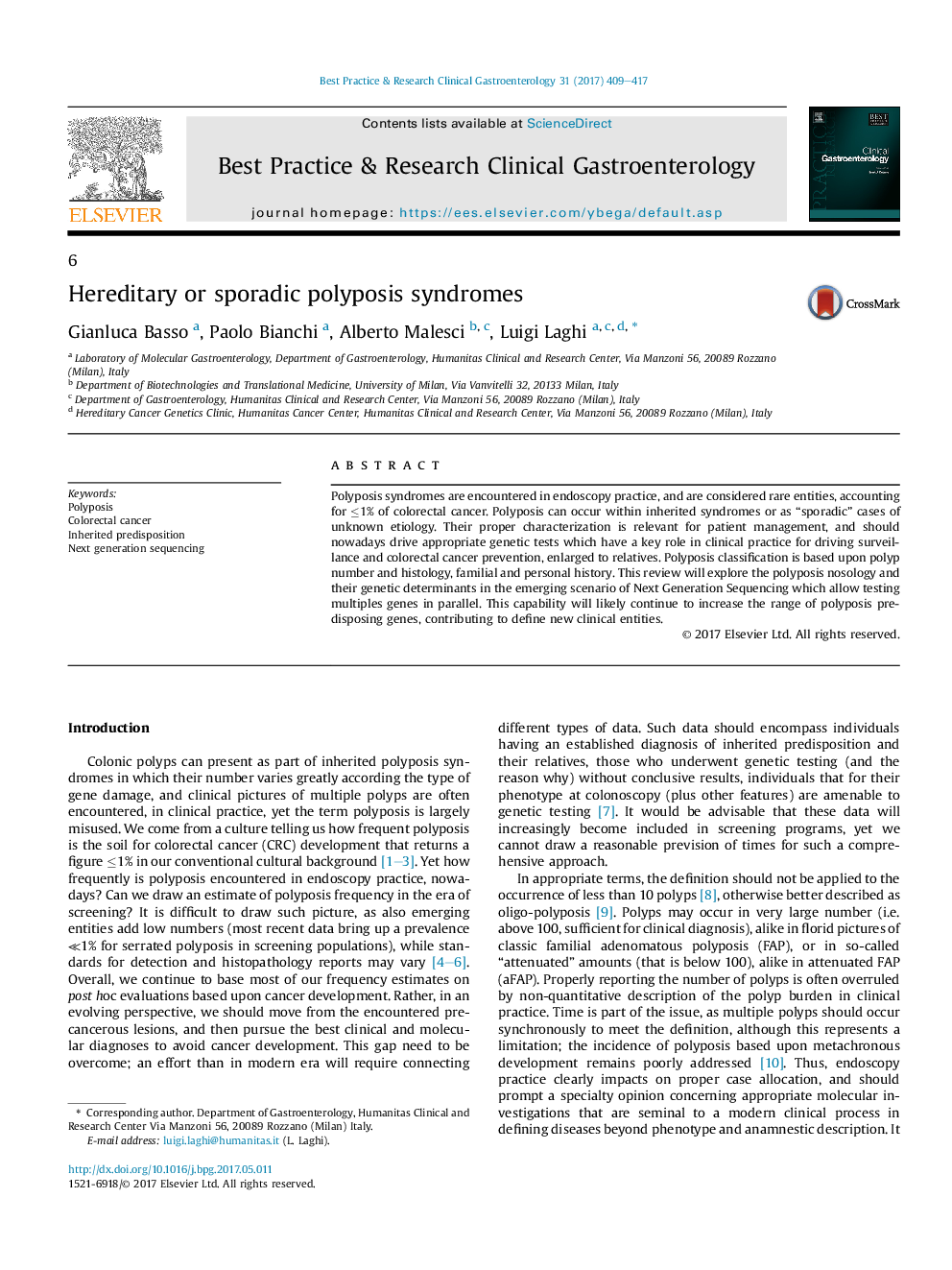| Article ID | Journal | Published Year | Pages | File Type |
|---|---|---|---|---|
| 5654477 | Best Practice & Research Clinical Gastroenterology | 2017 | 9 Pages |
Polyposis syndromes are encountered in endoscopy practice, and are considered rare entities, accounting for â¤1% of colorectal cancer. Polyposis can occur within inherited syndromes or as “sporadic” cases of unknown etiology. Their proper characterization is relevant for patient management, and should nowadays drive appropriate genetic tests which have a key role in clinical practice for driving surveillance and colorectal cancer prevention, enlarged to relatives. Polyposis classification is based upon polyp number and histology, familial and personal history. This review will explore the polyposis nosology and their genetic determinants in the emerging scenario of Next Generation Sequencing which allow testing multiples genes in parallel. This capability will likely continue to increase the range of polyposis predisposing genes, contributing to define new clinical entities.
